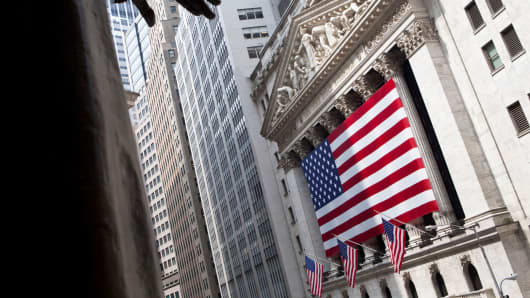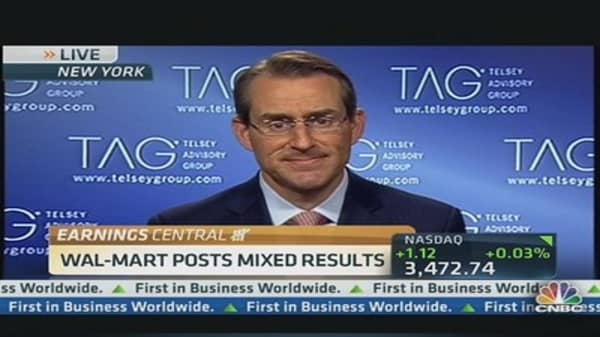A slowdown would affect two of the most impressive markets the most, according to Citi's report.
U.S. equities, as gauged through the Standard & Poor's 500, have risen more than 16 percent in 2013, while Japan's Nikkei has soared 46 percent.
"Dividend yields imply the best future returns should be in Asia ex-Japan and Australian equities, and the weakest in Japan and the U.S." Citi said.
U.S. companies survived a mediocre first quarter, with about 67 percent beating profit expectations but only 47 percent topping revenue estimates, according to Thomson Reuters.
(Read More: Slow Growth: Bad News for Jobs, Housing)
Negative outlooks have outnumbered positive more than 4-to-1 for the second quarter, indicating that valuations could start looking stretched soon. That would lead to an environment in which investors must be choosier about which stocks they select to advance a seemingly unstoppable rally.
"As idiosyncratic risk has risen, market participants are paying close attention to company-specific releases and guidance," Adam Parker, chief equity strategist at Morgan Stanley, said in a client note. "S&P 500 earnings revisions are essentially flat, with estimates revised up for financials and downward for technology.
(Read More: Commodity Fears and China Trouble Fund Managers)
Citi's analysis posits that the reason—outside of unprecedented central bank stimulus—global stocks have been able to advance is a "reversion to the mean" in which stocks simply bounced to a P/E balance more in keeping with historical norms.
Central bank policies have come into play, with the Federal Reserve using asset purchases to tamp down bond yields and juice up equity prices. Others have followed suit.
"The global search for yield has been another obvious driver. Investors have drifted out of low-yielding assets into equities, where yields are higher," Citi said. "Companies have attempted to fulfill the requirements of these new equity investors by raising dividends, even though EPS have been flat."
Citi's recommends that one way investors can play a slowing market is to find the companies planning to accelerate stock buybacks, which total more than $1 trillion since 2009. Sectors where repurchases are expected to be the highest include consumer discretionary, financials and information technology.
—By CNBC's Jeff Cox. Follow Jeff on Twitter @JeffCoxCNBC.com.





